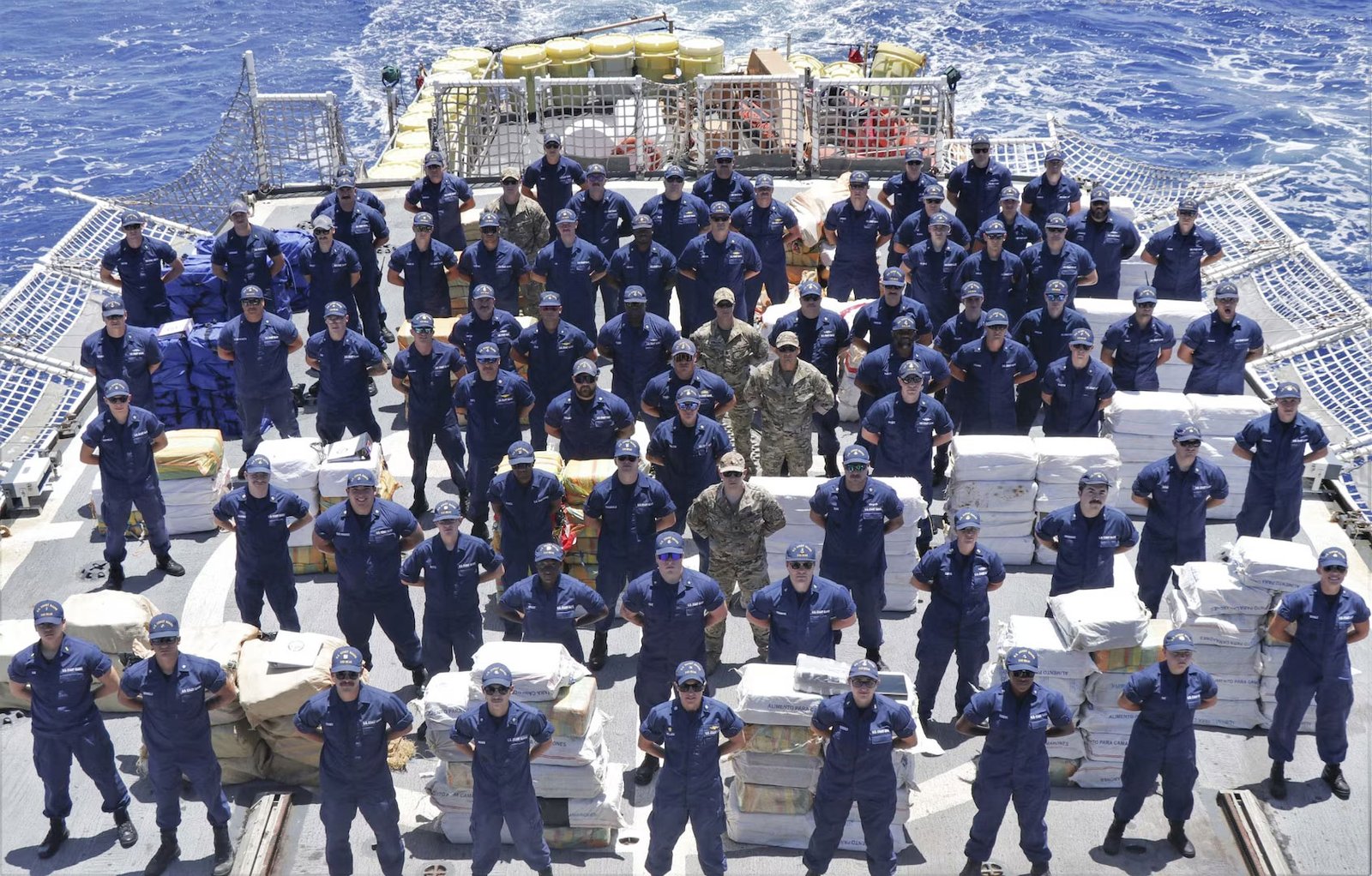Coast Guard Cutter Bear (WMEC 901) offloaded more than 14,153 pounds of cocaine worth more than $186 million in Miami Beach June 16th.
The offloaded drugs were interdicted during nine separate cases in the international waters of the Caribbean Sea and the Atlantic Ocean as a result of efforts by crews from:
- USCG Bear (WMEC 901)
- USCG Helicopter Interdiction Tactical Squadron (HITRON)
- USS Little Rock (LCS-9)
- USCG Tactical Law Enforcement Team-Pacific
- USCG Tactical Law Enforcement Team-South
- USCG Donald Horsley (WPC-1117)
- USCG Air Station Borinquen HC-144 aircrew
- A U.S. Customs and Border Protection, Air and Marine Operations (AMO) aircrew
“The contraband offloaded today represents the professional expertise and dedication of U.S. defense and law enforcement agencies working together to combat the flow of illicit drugs through the Caribbean Region into the United States,” said Lt. Peter Hutchison, duty enforcement officer at Coast Guard District Seven. “This teamwork is imperative to the identification, interception, and seizure of vessels engaged in illicit trafficking and a testament to the hard work of these crews.”
Along with the illicit narcotics, 12 suspected smugglers were apprehended and face prosecution in federal courts by the Department of Justice.
Detecting and interdicting illegal drug traffickers on the high seas involves significant interagency and international coordination. The Joint Interagency Task Force South in Key West, Florida conducts detection and monitoring of aerial and maritime transit of illegal drugs. Once interdiction becomes imminent, the law enforcement phase of the operation begins, and control of the operation shifts to the U.S. Coast Guard throughout the interdiction and apprehension. Interdictions in the Caribbean Sea are performed by members of the U.S. Coast Guard under the authority and control of the Coast Guard’s Seventh District, headquartered in Miami.

